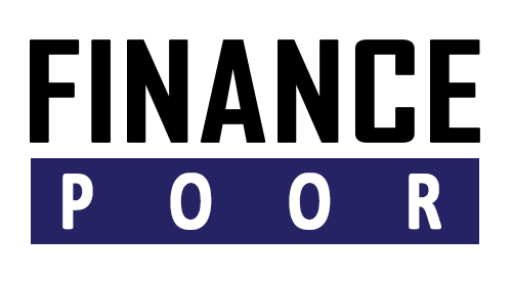An insurance agency is a business that writes and sells insurance. It is very similar to being an attorney, a doctor, or any other type of professional who must be licensed for him/her to practice his or her trade. An insurance agent (also known as an “insurance broker”) must be licensed by the state in which he or she operates. I think it is important to research and understand everything that matters including how much do insurance agency owners make in their business dealings.
A close focus on the matter
The main difference between being an attorney and an insurance agent is an attorney works for clients while an insurance agent works for a license. All states require insurance agents to have a license. However, not all states require agents to be members of any particular organization.
For example, some states allow anyone to apply for an agent’s license, while in other states, the only way to become an insurance agent is by going through a specific training program and then passing a state examination. In most states, there are additional requirements for becoming an “experienced” agent.
Only if the agent meets these requirements, can he or she represent clients, and only then can the agent charge a fee for providing advice and/or selling insurance. The main responsibility of an insurance agent is to find an appropriate insurance product for his or her client and explain the benefits and costs of that policy to the client. I want you to understand the essence of insurance agency owners in helping us secure our future because that is the first step towards making decisions that count. The other thing that might interest you to learn is how much do insurance agency owners make?
Another important responsibility of an insurance agent is to make sure his or her license is up to date by paying the required renewal fees. If the agent does not pay the renewal fees, the state where he or she is licensed will suspend his or her license. This can happen even if the agent has no clients and is not actively selling insurance, and is one of the most important things you need to understand.
Breaking it down
The main reason an insurance agent’s license may be suspended is that he or she failed to pay the renewal fees. What does it cost to become an insurance agent? The cost of going through a specific training program varies from state to state. However, the basic costs for most states are:

$1,000 to $3,000 for the initial application fee $100 to $300 for each renewal fee $30 to $100 for each exam fee an insurance agent must also pay a fee to have his or her license renewed on an ongoing basis. The frequency of this fee varies from state to state. In some states, the agent must pay the renewal fee every time his or her license is about to expire.
In other states, the agent only has to pay the renewal fee once every three years. In yet other states, the agent only has to pay the renewal fee every five years. The renewal fee is usually based on the agent’s gross income from his or her insurance business.
What does it cost to keep your license active? In most cases, an insurance agent’s license will remain active as long as he or she pays the renewal fees.
Indeed, in many states, an insurance agent’s license will not be suspended even if the agent fails to pay the renewal fees for several years in a row. However, if the agent stops paying the renewal fees, his or her license will be automatically suspended within 30 to 60 days. When this happens, the agent will have to take the test to get his or her license back.
The agent may have to pay a reinstatement fee. How do you find out how much it costs to become an insurance agent? All states have an organization (either a private or a public organization) that tracks and publishes information about the costs of getting an agent’s license. You can call your local insurance regulatory agency for the exact cost of going through the training program in your state. The provider answers all your questions even those to do with how insurance agency owners register their businesses.
You must be pragmatic
You can also get this information from the state’s insurance regulatory agency by calling their main number (listed in the white pages of the phone book) and asking for “the licensing agency.”
Business plan
The first step in writing a business plan is to identify all the business risks. A business risk is anything that could harm the financial health of the business. For example, common business risk is a change in consumer demand. If the need for homeowners’ insurance suddenly decreases, the agency may be unable to renew its license and, therefore, may have to close its doors.

Accordingly, one of the sections of the business plan should be titled “Changes in the Insurance Market” and should contain a description of any changes in the market for the specific product the agency is selling. Changes in the Insurance Market For example, if the agency is selling homeowners’ insurance, a change in the market might be a decrease in the number of homeowners who need insurance.
This could happen because: Some homeowners have already obtained the insurance they need from their existing insurer. Some homeowners have repaired or made necessary improvements to their property and do not need insurance anymore. Others have decided not to repair or make necessary improvements to their property because it is too expensive.
Another example of a change in the insurance market could be an increase in the cost of the insurance the agency is selling. If this happens, the agency may have to raise its prices to maintain its profit margin. For example, if the cost of homeowners’ insurance has increased by 10%, the agency may have to increase the price of its homeowners’ insurance by about 11% to remain profitable.
General liability insurance
The next area the agent should cover is general liability insurance. This type of insurance is very important for any business in operation. It insures against claims from customers for injuries or damages caused by the negligence of the agent. General liability insurance usually costs less than 1/10th the cost of having to defend a lawsuit brought against your company. However, this insurance is still very important. Without it, you could be left with substantial financial problems.

How does an insurance agent go about obtaining this insurance? There are several ways an agent can go about this:
He or she can purchase it himself or herself through a broker or could do it through an insurer. Or he or she can self-insure by obtaining a “blanket” policy that covers all types of liabilities. The last alternative is the one most agents choose. They will work out some sort of deal with their clients to pay for the general liability coverage and the client will then make monthly payments to the agent. This way the client gets immediate relief from the insurance premiums and the agent receives a small commission for selling the insurance.
Identifying insurance business risks
The second step in writing a business plan is to identify and analyze the various threats to the financial health of the business. A threat is anything that could harm the status or growth of the business. For example, a common threat to the financial health of any business is a decrease in consumer demand.
If the need for homeowners’ insurance suddenly decreases, the agency may be unable to renew its license and, therefore, may have to close its doors. Accordingly, one of the sections of the business plan should be titled “Threats to the Financial Health of the Business” and should contain a description of any threats to the financial health of the business.
Threats to the Financial Health of the Business. For example, a common threat is a decrease in consumer demand. If the need for homeowners’ insurance suddenly decreases, the agency may be unable to renew its license and, therefore, may have to close its doors.
Accordingly, one of the sections of the business plan should be titled “Changes in the Insurance Market” and should contain a description of any changes in the market for the specific product the agency is selling. Changes in the Insurance Market For example, if the agency is selling homeowners’ insurance, a change in the market might be a decrease in the number of homeowners who need insurance. This could happen because: Some homeowners have already obtained the insurance they need from their existing insurer. There is quite a lot that you could learn about the insurance agency owners and what you stand to gain in the process. You should take time to undertake research to learn all the most important points about insurance. I also recommend talking to the experts because they have a lot to tell you about insurance and the associated benefits.
